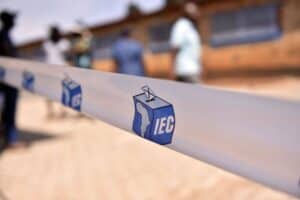In 2019, the Electoral Commission of South Africa (IEC) estimated that more than a quarter of those who could register, didn’t bother.

Prior to 1994, South African politics was largely driven by the stymied desire of the black majority to vote.
Today, ironically, the biggest challenge is the enormous number of black citizens who don’t and won’t vote.
It’s a measure of increasing disillusionment.
Democracy has lost the gloss and South Africans – especially the youth – are alienated from their government, yet don’t much trust any of the opposition parties to perform better.
The result is apathy, with participation in the key mechanism driving democracy, regular free and fair elections, sagging steadily.
Measured both in voter registration and polling day turnout, South Africa is among the poorest performing countries in the world.
In 2019, the Electoral Commission of South Africa (IEC) estimated that more than a quarter of those who could register, didn’t bother.
On that basis, the “real” turnout dropped to less than half (49%) of those eligible to vote.
About 40 million people are qualified to vote on Monday. But one-third of those, more than 13 million potential voters, haven’t registered.
This nonvoting constituency, composed as it overwhelmingly is of black South Africans, is a massive headache for the ANC.
First, not only have large numbers of its traditional voters not registered, but turnout is invariably lower in local elections, which disproportionately affects the ANC’s showing.
In 2016, this cost the ANC control, albeit temporarily, of three major metros second, until now, the increasing number of its core supporters who are disillusioned with the performance of the governing party have
simply abstained. Mostly, they have not transferred their votes to other parties. If on Monday, they in any numbers act on their disenchantment, the ANC could have a nasty surprise.
Local elections are an ideal opportunity for that kind of tactical voting. ANC mavericks can kick the shins of the party at a municipal level without any worries about disrupting the balance of power at a national level.
Such a switch in alliances would also give voters a sense of where the ANC ideological heart truly lies. For the first time before an election, the ANC has admitted it is preparing for coalition talks. Acting secretary-general Jessie
Duarte this week said the ANC has already identified those parties with which it is not willing to enter into agreements on the basis of their ideological standpoints.
It is likely that the ANC would as a matter of principle rule out entering into an alliance with the DA.
However, there would be far less resistance within the party to aligning with the EFF – a grim portent of South Africa’s future.
There are other election result permutations that might spare the ANC the dilemma of such a public relations fiasco.
A strong showing by a couple of the smaller players, Good in the Western Cape and ActionSA in Gauteng, could help let the ANC off the moral hook.
Both parties would readily fit in an ANC-led alliance. The essence of participative democracy is, duh, participating.
Abstention from voting, whether it is premised on the vanity that no party meets your high moral standards, or an
inability to turn your back on a party that has betrayed your trust, is a luxury South Africa cannot afford at this critical juncture.






